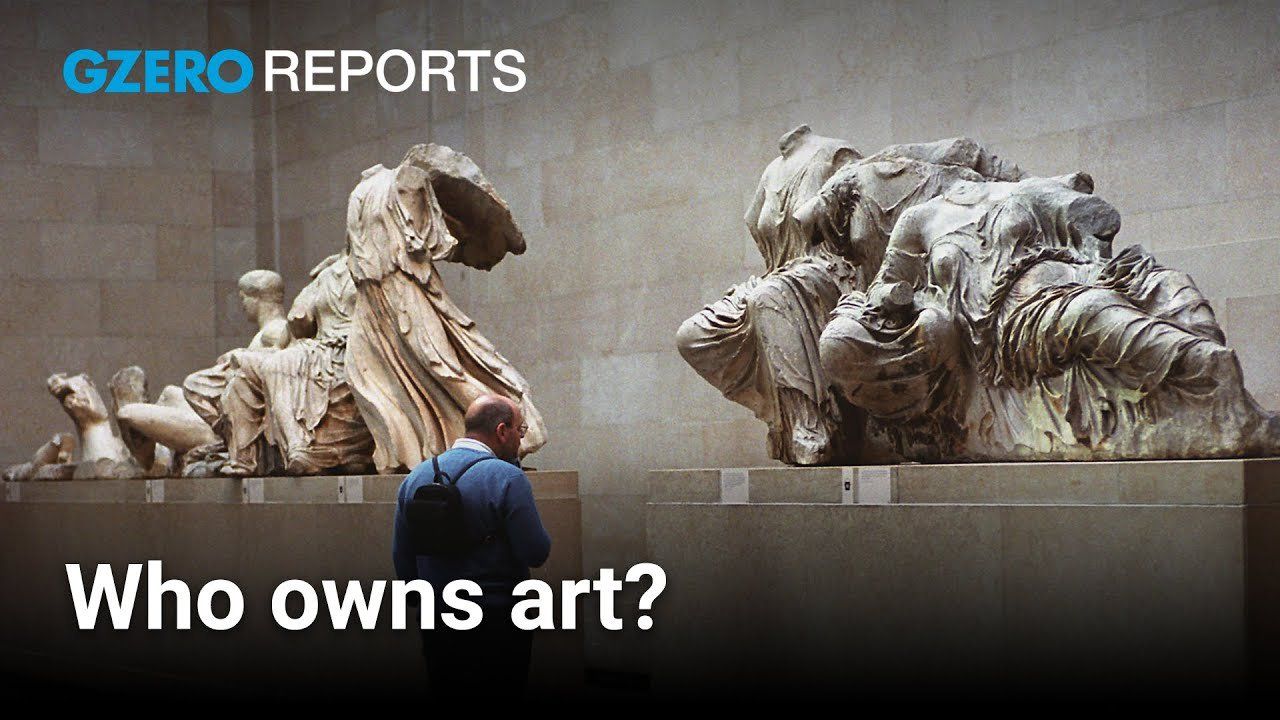
Who gets to claim art as their own? It’s a complicated issue, and elite art institutions are undergoing a reckoning over their Indiana Jones-style acquisition tactics of the past. GZERO’s Alex Kliment explores the complex debate of art repatriation and the controversy surrounding ancient artifacts displayed in Western museums. One of the most infamous cases involves the Parthenon Marbles (sometimes called the Elgin Marbles) at the British Museum, which the British took during Ottoman rule. The Greeks have been demanding the Marbles be returned for almost 200 years.
“I think this is really a moral or ethical case,” says Leila Amineddoleh, an art repatriation expert, “Should museums hold onto objects that were taken under either violent circumstances or were taken during a time of looting, theft or when a country was colonized?”
This question of who owns art has become more intensely political in recent years. On one side are the defenders of the “Universal Museum” idea, who say it’s important to have places where everyone can come see art from all over the world in one place. However, critics argue it’s a form of cultural imperialism that denies rightful ownership to the people who created the artifacts in the first place. Ultimately, the debate raises broader questions about museums' responsibility to address historical injustices, balance cultural preservation with global accessibility, and navigate the complex dynamics of ownership and cultural heritage.
Watch the GZERO World with Ian Bremmer episode: The identity politics trap
Catch GZERO World with Ian Bremmer every week at gzeromedia.com/gzeroworld or on US public television. Check local listings.
- Hard Numbers: Zimbabwe election results, deadly attack in Haiti, British Museum recovery, valuable mug shot, chasing reindeer ›
- Tory revolt threatens Rishi’s signature immigration bill ›
- Mitsotakis wins big in Greece ›
- What We’re Ignoring: Revenge of the nerds ›
- Everything is political™: Ancient sculptures edition ›
- The Art of Geopolitics: Qatar's New Museum ›
- Fair use or foul play? The legal tug-of-war over AI-created works ›
- Why Greek PM Mitsotakis pushed for same-sex marriage despite strong opposition - GZERO Media ›